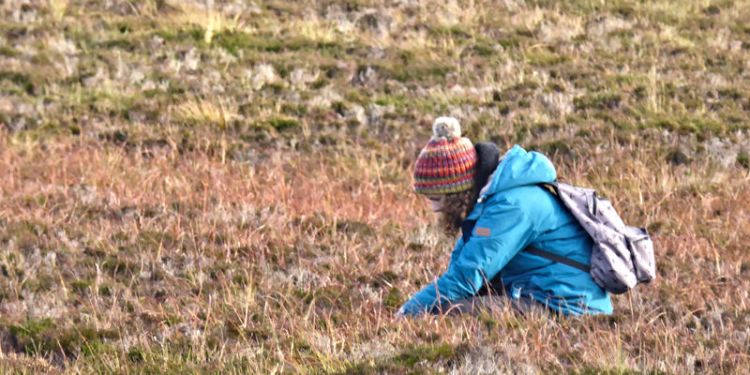Developing the environmental scientists of the future

Dr Alice Noble recently completed her iCASE PhD with Natural England at the University of Leeds, where she studied the interactions of management burning on blanket peatland vegetation, particularly Sphagnum.
Natural Environment Research Council (NERC) iCASE studentships are just one of the ways that Natural England works with universities to support postgraduate researchers.
These are competitively funded PhDs which allow the university and partner organisation - in this case, Natural England - to undertake new science relevant to the role or work of the partner.
In return, the researcher is able to spend some time with the partner learning about the organisation, its work and how it is run - developing knowledge and skills that will be valuable in their PhD and future career.
Alice said: "Completing my PhD at the University of Leeds with Natural England as a partner was a fantastic experience.
Working with a partner organisation helped to focus my research to address up-to-date, real-world problems and gave a clear pathway for impact.
"My partner supervisors Alistair Crowle and Dave Glaves were a great support, and the time I spent with Natural England was some of the most memorable of my studies, particularly out in the field. I went on to apply for a role at Natural England, and currently work there full-time."
Alice has successfully published five papers that are being used to help inform Natural England’s decision-making in the uplands.
Professor Joseph Holden, Director of water@leeds, University of Leeds said: "Supervising PhD projects in collaboration with Natural England is enormously rewarding.
We get to ensure that the research has immediate practical or policy relevance, fast-tracking the route from research to uptake.
"Alice’s PhD project has been very productive, with five new research papers in good peer-reviewed journals. The research clearly demonstrates the negative impacts of prescribed burning on Sphagnum."
The use of fire on blanket bog as a management tool is increasingly recognised as having negative effects on the environment in the form reduced water quality, carbon release, vegetation change and changes in aquatic invertebrate communities downstream of burned catchments.
Natural England Chief Scientist Dr Tim Hill said: "I am keen to make sure that Natural England is an organisation that can become home for the brightest and best new emerging scientific research talent."
"I’m thrilled to see that Alice has been able to publish five papers from the work that she’s done as part of her PhD studentship with the University of Leeds and Natural England."
This is testament to the quality and relevance of her work in adding to the evidence-base on how to manage and restore upland peatlands.
iCASE studentships such as this are proving to be immensely valuable in providing a pathway to highly relevant, quality science that has great operational and policy impact.
Sphagnum species have been of key importance in the development of northern peatlands and peat core evidence suggests they were historically common on English blanket bogs, though they are less so now but are increasing.
Dr Andy Clements, Natural England Board Member & Chair of the Natural England Science Advisory Committee said: "Enabling student research to contribute to urgently required practical knowledge for conservation management has clearly been a mutually rewarding and beneficial experience."
Natural England’s evidence-informing approach to important conservation issues is enhanced by high quality, impactful research of this nature.
Increased understanding of the effects of burning on the different species that occur on blanket bog is an important step in understanding the best way to restore this habitat, most of which in England is degraded to varying extent because of historic land management and atmospheric pollution.
Clifton Bain, CEO of the IUCN Peatland programme, which supports Natural England, said: "Restoring and conserving peatlands is one of the great environmental priorities of our time. Having clear scientific evidence to guide peatland management activity is vital to deliver peatlands that benefit wildlife, carbon and water.
Well-designed research can help reduce conflict and allow the whole peatland community to move forward in tackling this urgent issue.
Alice’s papers are available below:
- Prescribed burning, atmospheric pollution and grazing effects on peatland vegetation composition
- Impacts of peat bulk density, ash deposition and rainwater chemistry on establishment of peatland mosses
- Impacts of prescribed burning on Sphagnum mosses in a long-term peatland field experiment
- Peatland vegetation change and establishment of re-introduced Sphagnum moss after prescribed burning
- Fire temperatures and Sphagnum damage during prescribed burning on peatlands

